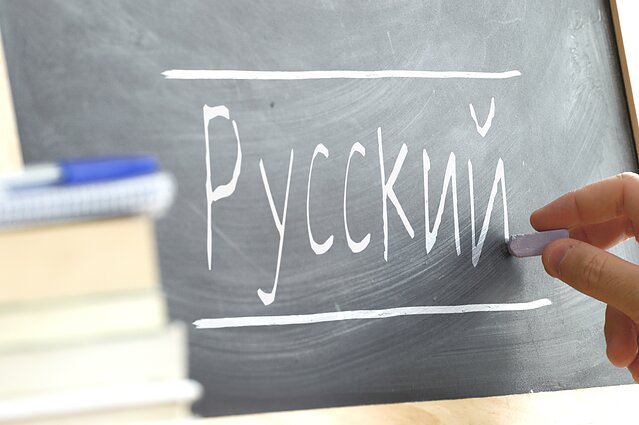Incoming students are often hesitant to start a new language. But “critical languages” like Russian bring a multitude of fellowship and internship opportunities for current students, as well as job possibilities after graduation. Below are some of the most frequently asked questions we get from incoming students who are considering starting Russian.
What can I do with Russian?
Russian is the 8th most spoken language in the world. It is used widely throughout Central Asia, the Caucasus, Eastern Europe, the USA, and in Israel, as well as being the primary language for many indigenous groups in Russia. In 2022 both the House and Senate Committees on Intelligence designated the Russian language as a top strategic priority for U.S. national interests. Russia’s ongoing war in Ukraine has meant an influx of funding, fellowships, and job openings in the USA and abroad for students with Russian proficiency in fields related to security, intelligence, law, disinformation and media analysis, international relations, and tech.
Isn’t Russian really hard?
Students are often intimidated by the Cyrillic alphabet, but quickly discover that most students learn the entire alphabet in a week. Russian, like all languages, poses its challenges. However, introductory Russian moves significantly slower than many languages on campus in order to give students time and space to assimilate unfamiliar structures. And unlike many languages, in Russian you don’t have to memorize the gender of words!
How many classes will I need to take?
Russian is the only “critical language” (as defined by the U.S. Department of State) taught at Dickinson through which students can fulfill the language requirement in only 3 semesters.
But I’m not really a language person …
Most students start with no prior Russian knowledge and many studied other languages in high school but wanted a fresh start. Small class sizes in Russian mean that students can build confidence through individualized instruction. Often students who have previously struggled as language students can find renewed motivation and confidence in the study of less commonly taught languages.
What are my study abroad and internship options?
Students can spend a semester or a year at the Dickinson Center in Tbilisi, Georgia, which offers intensive Russian-language courses and area studies electives in English. Summer Russian immersion opportunities are available through our partner programs in Armenia, Georgia, Kyrgyzstan, and Latvia, and a Ukrainian language workshop in Poland. The Russian department has reserved internship opportunities for motivated language students, including at leading think tanks in Tbilisi and as departmental assistants on campus. Dickinson Russian students are regular recipients of competitive national fellowships, such as the Critical Language Scholarship, Project Go (for ROTC), Fulbright, and the Foreign Language Area Scholarship (for graduate study).
